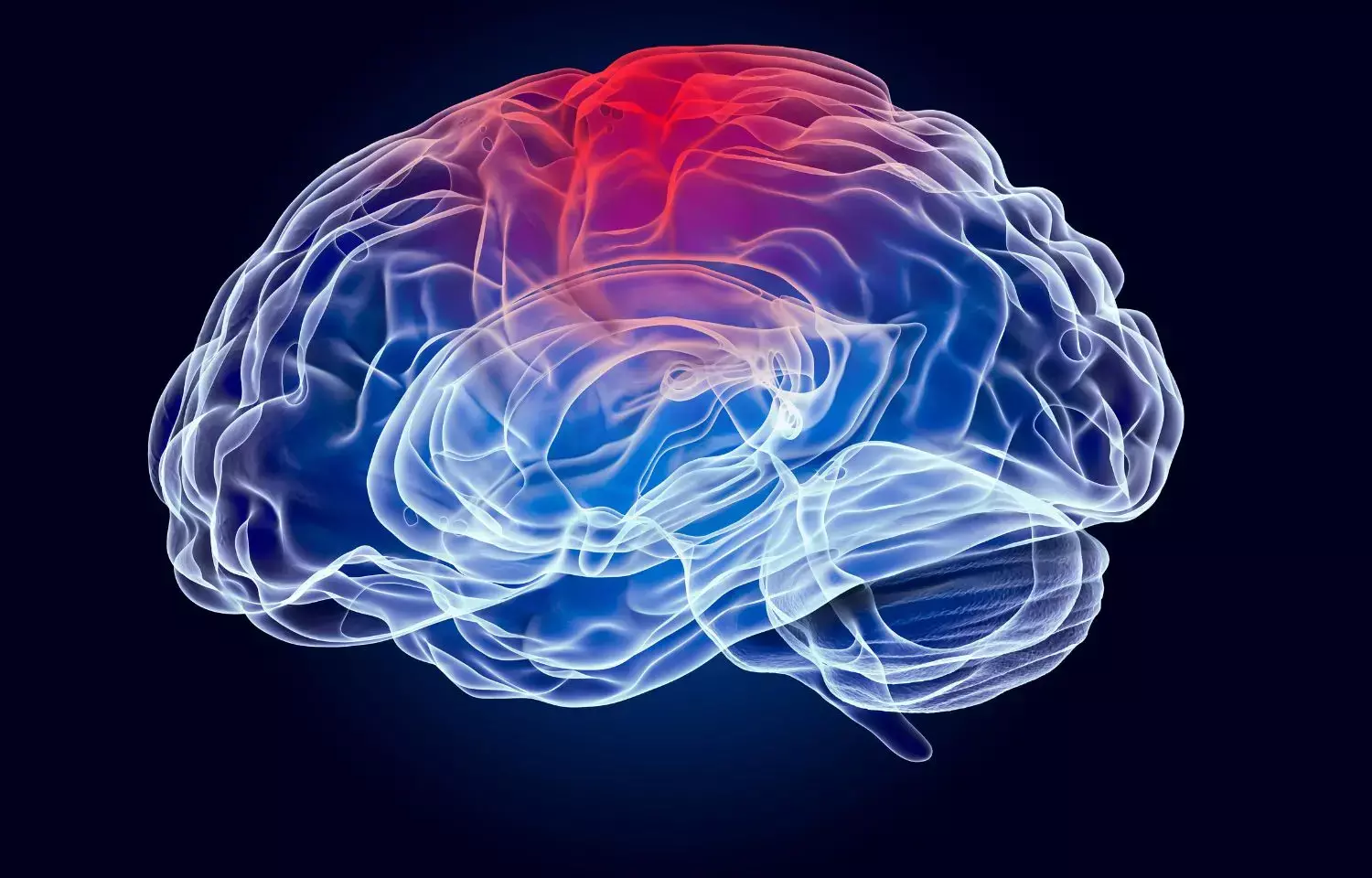- Home
- Medical news & Guidelines
- Anesthesiology
- Cardiology and CTVS
- Critical Care
- Dentistry
- Dermatology
- Diabetes and Endocrinology
- ENT
- Gastroenterology
- Medicine
- Nephrology
- Neurology
- Obstretics-Gynaecology
- Oncology
- Ophthalmology
- Orthopaedics
- Pediatrics-Neonatology
- Psychiatry
- Pulmonology
- Radiology
- Surgery
- Urology
- Laboratory Medicine
- Diet
- Nursing
- Paramedical
- Physiotherapy
- Health news
- Fact Check
- Bone Health Fact Check
- Brain Health Fact Check
- Cancer Related Fact Check
- Child Care Fact Check
- Dental and oral health fact check
- Diabetes and metabolic health fact check
- Diet and Nutrition Fact Check
- Eye and ENT Care Fact Check
- Fitness fact check
- Gut health fact check
- Heart health fact check
- Kidney health fact check
- Medical education fact check
- Men's health fact check
- Respiratory fact check
- Skin and hair care fact check
- Vaccine and Immunization fact check
- Women's health fact check
- AYUSH
- State News
- Andaman and Nicobar Islands
- Andhra Pradesh
- Arunachal Pradesh
- Assam
- Bihar
- Chandigarh
- Chattisgarh
- Dadra and Nagar Haveli
- Daman and Diu
- Delhi
- Goa
- Gujarat
- Haryana
- Himachal Pradesh
- Jammu & Kashmir
- Jharkhand
- Karnataka
- Kerala
- Ladakh
- Lakshadweep
- Madhya Pradesh
- Maharashtra
- Manipur
- Meghalaya
- Mizoram
- Nagaland
- Odisha
- Puducherry
- Punjab
- Rajasthan
- Sikkim
- Tamil Nadu
- Telangana
- Tripura
- Uttar Pradesh
- Uttrakhand
- West Bengal
- Medical Education
- Industry
Increased insulin levels in traumatic brain injury tied to DVT: Study

China: A recent study has shown that patients showing increased insulin levels in the first 14 days following severe traumatic brain injury (TBI) may be at increased risk of deep venous thrombosis (DVT).
The study published in Neurocritical Care found that elevated insulin levels during this period (14 days) may indicate insulin resistance related to platelet hyperactivity and thus raise DVT risk.
To clarify whether insulin resistance underlies the development of DVT in patients with severe traumatic brain injury, Min Zhou, University of Science and Technology of China, Hefei, People's Republic of China, and colleagues analyzed the association between plasma insulin levels and DVT in patients with severe TBI.
For this purpose, the researchers conducted a prospective observational study of 73 patients. They measured glucose, insulin, inflammatory factors, glucagon-like peptide 1 (GLP-1), and hematological profiles during the first 14 days after TBI. Tracking of ultrasonic surveillance of DVT was done.
To determine the factors that distinguished patients with and without DVT or with and without insulin therapy, A two-way analysis of variance was used. The authors separately conducted partial correlations of insulin levels with all the variables in patients with DVT or without DVT. DVT-associated factors were analyzed by multivariable logistic regression. An assessment of neurological outcomes six months after TBI was done.
The study's main findings were as follows:
- Among patients with a mean age of, DVT developed in 27% of the patients on a median of 10.4 days, with higher scores of Acute Physiology and Chronic Health Evaluation II but similar TBI severity and Sequential Organ Failure Assessment scores.
- DVT patients were more likely to receive insulin therapy than those without DVT (60% vs. 28%); hence, they had higher levels of 14-day insulin. However, insulin levels were similar between patients with DVT and those without DVT in a subgroup of patients who received insulin therapy (n = 27) and those without insulin therapy (n = 46).
- The platelet profile notably distinguished between patients with and without DVT. Remarkably, none of the two groups' blood cell counts coagulation profiles, or inflammatory mediators varied.
- Patients who received insulin therapy had significantly higher insulin, glucose, and GLP-1 levels and were more likely to develop DVT (60% vs. 15%) along with simultaneous platelet depletion.
- Insulin levels correspond with glucose, GLP-1 levels, and platelet count exclusively in patients without DVT. Conversely, in DVT patients, insulin is negatively associated with GLP-1 levels.
- Age and elevated insulin levels on days 4–7 were independently associated with DVT.
- Patients with insulin therapy also showed bad Glasgow Outcome Scale scores.
The researchers conclude, "elevated insulin levels in the first 14 days after TBI may be indicative of insulin resistance, which is associated with platelet hyperactivity, thus raising DVT risk."
Reference:
Du, M., Zhang, QH., Tang, R. et al. Prognostic Significance of Plasma Insulin Level for Deep Venous Thrombosis in Patients with Severe Traumatic Brain Injury in Critical Care. Neurocrit Care (2022). https://doi.org/10.1007/s12028-022-01588-y
Dr Kamal Kant Kohli-MBBS, DTCD- a chest specialist with more than 30 years of practice and a flair for writing clinical articles, Dr Kamal Kant Kohli joined Medical Dialogues as a Chief Editor of Medical News. Besides writing articles, as an editor, he proofreads and verifies all the medical content published on Medical Dialogues including those coming from journals, studies,medical conferences,guidelines etc. Email: drkohli@medicaldialogues.in. Contact no. 011-43720751


